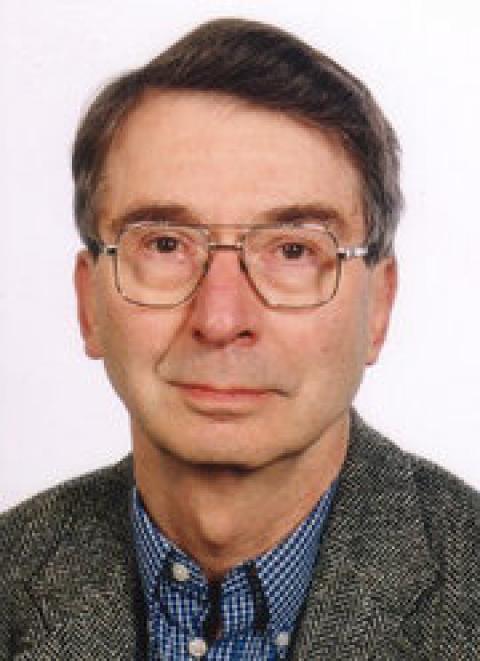Gabriel Kolko, an influential left-leaning historian who argued that American domestic and international policies have long been driven more by the interests of big business than by the interests of the people, died on May 19 at his home in Amsterdam. He was 81.
He had a progressive neurological disorder and chose euthanasia under Dutch law, said Pim van den Berg, a longtime friend.
In a series of books on turning points in American history, from the westward expansion of the railroads in the 19th century to the Cold War, Vietnam and the war on terrorism, Professor Kolko carved a distinct and sometimes groundbreaking path. He made the case that alliances between government and business, rather than between government and the people, were the essential drivers of regulatory policy, social programs and foreign affairs — an idea that came to be called corporate liberalism.
He was regarded as a cage-rattling New Left historian in the 1960s, and he was active in leftist causes, but over time he provoked thinkers of various stripes. By his late 30s, he had established himself as unconventional. The Pulitzer Prize-winning historian David Herbert Donald called him “a lonely figure among radical historians.”
“Rarely appearing at historical conventions, rarely contributing to the little magazines of the left, Kolko is an impressively productive scholar,” Mr. Donald wrote in The New York Times Book Review in July 1970 in an overview titled “Radical Historians on the Move.”
“Though most historians have written of Progressivism as a movement of middle-class reformers to regulate corporate monopoly,” Mr. Donald continued, “Kolko argues that it was business itself that sought federal regulation, partly to escape Populist legislation by the state legislatures, chiefly to rationalize its own economic order.”
Professor Kolko had already written two of his most notable works, “The Triumph of Conservatism: A Reinterpretation of American History, 1900-1916” (1963) and “The Politics of War: The World and United States Foreign Policy, 1943-1945” (1968). In them, he argued that much of American policy at home and abroad was meant to suppress the left and preserve corporate power and peace.
His books generally did not reach popular audiences. His prose was often described as wooden. Some critics saw conflict in the high standards to which he held the United States while seeming more forgiving of other countries’ shortcomings. Some spotted factual errors. Some saw his leftist bias as distorting. But many acknowledged his rigor and originality of thought.
“This book is simultaneously original and dogmatic, perceptive and blind, clearly reasoned and clogged by ambiguity and awkward prose,” Gaddis Smith, the Yale historian of American diplomacy, wrote in a review of “The Politics of War” in The Times. “It is also the most important and stimulating discussion of American policy during World War II to appear in more than a decade.”
Professor Kolko wrote many more books, moving through history in the approximate order in which it unfolded. With his wife, Joyce, he wrote about the early Cold War in “The Limits of Power: The World and United States Foreign Policy, 1945-1954” (1972). In 1985, he wrote “Anatomy of a War: The United States, Vietnam and the Modern Historical Experience.”
In the 1950s, Professor Kolko wrote pamphlets for the leftist Student League for Industrial Democracy. In the 1960s, he supported the North Vietnamese, and he testified at the tribunal organized by the philosopher Bertrand Russell in 1967 to investigate war crimes in Vietnam. He also criticized his employer, the University of Pennsylvania, for allowing research on Agent Orange, the toxic chemical used by the United States in Vietnam — an act that played a role in his decision to leave the university in the 1960s.
Gabriel Morris Kolko was born on Aug. 17, 1932, in Paterson, N.J. His father, Philip, a Jewish immigrant from Poland, was a Yiddish scholar who struggled to find work in the United States. His mother, Lillian, was a schoolteacher. When Gabriel was a boy, his family moved to Akron, Ohio, where he became interested in the city’s active labor movement.
No immediate family members survive. Professor Kolko’s wife of 57 years, the former Joyce Manning, a historian, died in 2012.
In 1954, Professor Kolko received a bachelor’s degree in economic history from Kent State University. The next year he received a master’s in American social history from the University of Wisconsin, where he was influenced by the revisionist leftist historian William Appleman Williams. He received his doctorate from Harvard in 1962.
Professor Kolko taught at Penn and the State University of New York at Buffalo (now the University at Buffalo) before joining the faculty of York University in Toronto in 1970. He remained an emeritus professor at York after he moved to Amsterdam in the 1990s.
In recent years, Mr. Kolko wrote for the left-wing journal CounterPunch. In one of his final posts, during the 2012 presidential campaign, he sought to dispel what he called “the New Deal illusion.” Alluding to his earlier work, he wrote that President Franklin D. Roosevelt and his fellow Democrats had simply extended or recast many policies of Roosevelt’s Republican predecessor, Herbert Hoover.
“The New Deal illusion survives because it is a very useful to today’s Democratic Party,” he said. “It needs myths, but if one knows the truth about it then we have the basis for understanding the essentially conservative nature of today’s Democratic Party.”


Spread the word